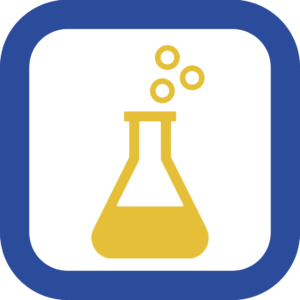
The intention of the Bishop Perowne science curriculum is to provide powerful wisdom to all students, which in turn provides limitless opportunities. The science curriculum develops student understanding and interest in the world that they live in and through scientific enquiry, students are able to develop strong problem solving skills which they can apply to other learning and to their future lives.
At Bishop Perowne, the Science department functions to provide students with deep knowledge of our world within the disciplines of Biology, Chemistry and Physics. Each of our lessons provides students with an opportunity to reflect on relevant prior learning via ‘flashback’ slides, enabling students to establish foundational knowledge that they can develop further in the lesson. We appreciate that students are on a learning journey in science which spans across their time in education and as such we ensure that students have solid starting points upon which they can build their knowledge and understanding of the material world.
To provide students with a better understanding of the relevance of science to the wider world, each lesson has a dedicated time to focus on context. In this time, students are able to appreciate how the content of the lesson applies to real life and also appreciate the impact of different scientists on the progress of various aspects of humanity.
Year 7
Students start with an introduction to science unit, which helps students to understand the importance of health and safety in the laboratory. They learn about common lab equipment, safety symbols and how to operate equipment such as a Bunsen Burner. After this unit, students enter a cycle of biology, chemistry and physics units, providing an opportunity to observe, experiment and develop the foundations of knowledge which can be built upon in year 8.
Year 8
Year 9
AQA GCSE Combined Science Pathway
Offers two GCSE grades in combined science and students have one teacher delivering the specification. At the end of the course, students will sit 6 science exams, each of which will be 1hr15mins long. Students will sit either foundation tier (which can award up to two grade 5’s) or higher tier (which can award up to two grade 9’s).
AQA GCSE Triple Science Pathway
Offers three GCSE grades – one for each of Biology, Chemistry and Physics. Students have three science teachers, each delivering one of the science disciplines. At the end of the course students will sit 6 science exams, each of which will be 1hr45mins long. Students will sit either foundation tier (which can award up to three grade 5’s) or higher tier (which can award up to three grade 9’s).
Board and specification:
Most students will be entered for GCSE combined science and will achieve a double GCSE grade (from 1-1 to 9-9). Some students will be put onto the separate science pathway and will achieve three GCSEs in biology, chemistry and physics.
Exam structure:
Year 11 Hub – Fridays 3pm – 4pm
STEM Club Thursdays 3pm – 4pm
| Description | Type |
|---|---|
| Biology: Exam Board (AQA) Resources | External Link |
| Chemistry: Exam Board (AQA) Resources | External Link |
| Physics: Exam Board (AQA) Resources | External Link |
| Science (Combined): Exam Board (AQA) Resources | External Link |
| Science: School Revision Guide | School PDF Document |






























| Cookie | Duration | Description |
|---|---|---|
| __RequestVerificationToken | session | This cookie is set by web application built in ASP.NET MVC Technologies. This is an anti-forgery cookie used for preventing cross site request forgery attacks. |
| cookielawinfo-checkbox-advertisement | 1 year | Set by the GDPR Cookie Consent plugin, this cookie is used to record the user consent for the cookies in the "Advertisement" category . |
| cookielawinfo-checkbox-analytics | 11 months | This cookie is set by GDPR Cookie Consent plugin. The cookie is used to store the user consent for the cookies in the category "Analytics". |
| cookielawinfo-checkbox-functional | 11 months | The cookie is set by GDPR cookie consent to record the user consent for the cookies in the category "Functional". |
| cookielawinfo-checkbox-necessary | 11 months | This cookie is set by GDPR Cookie Consent plugin. The cookies is used to store the user consent for the cookies in the category "Necessary". |
| cookielawinfo-checkbox-others | 11 months | This cookie is set by GDPR Cookie Consent plugin. The cookie is used to store the user consent for the cookies in the category "Other. |
| cookielawinfo-checkbox-performance | 11 months | This cookie is set by GDPR Cookie Consent plugin. The cookie is used to store the user consent for the cookies in the category "Performance". |
| elementor | never | This cookie is used by the website's WordPress theme. It allows the website owner to implement or change the website's content in real-time. |
| viewed_cookie_policy | 11 months | The cookie is set by the GDPR Cookie Consent plugin and is used to store whether or not user has consented to the use of cookies. It does not store any personal data. |
| Cookie | Duration | Description |
|---|---|---|
| DcLcid | 3 months | No description available. |
| FormsWebSessionId | 1 month | No description |
| usenewauthrollout | 1 month | No description |